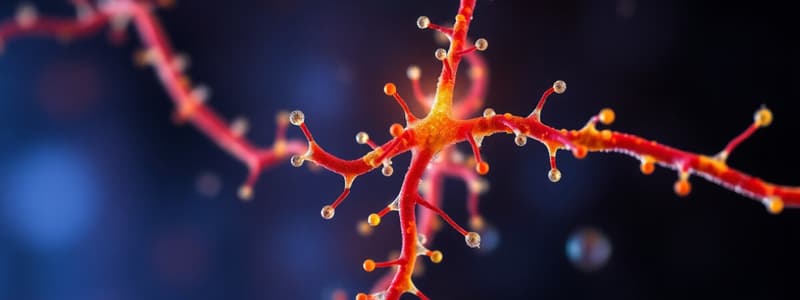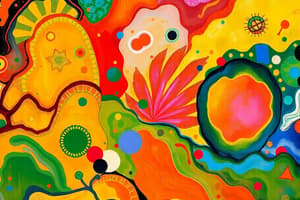Podcast
Questions and Answers
What is life in science?
What is life in science?
It is the period from birth to death or as the condition that occurs only in living organisms.
Which of the following theories on the origin of life is based on the idea of a supreme being creating all life forms?
Which of the following theories on the origin of life is based on the idea of a supreme being creating all life forms?
What does the term 'panspermia' mean?
What does the term 'panspermia' mean?
The spontaneous generation theory claims that living creatures can arise from non-living matter.
The spontaneous generation theory claims that living creatures can arise from non-living matter.
Signup and view all the answers
Who conducted an experiment to challenge the idea of spontaneous generation?
Who conducted an experiment to challenge the idea of spontaneous generation?
Signup and view all the answers
Study Notes
What is Life in Science?
- Life is the period from birth to death
- Life is also defined as the condition that occurs only in living organisms
- Life is any system capable of performing functions such as eating, metabolizing, breathing, moving, growing, reproducing, etc.
- Simply, life sciences are the study of living organisms and life processes.
Theories on the Origin of Life
-
Special Creation/ Divine Creation - all life forms existing today were created by a supreme being.
-
Spontaneous Generation Theory/ Abiogenesis - this theory was believed by Greek philosophers like Aristotle, Thales, Anaximander, Newton, and Needham. It states that living creatures could arise from non-living matter.
- Italian Francesco Redi conducted an experiment that challenged the idea of spontaneous generation.
- Redi was able to prove that organisms do not just come to life spontaneously.
-
Theory of Biogenesis
-
Panspermia - this theory suggests that life forms were seeded on Earth from outer space. "Panspermia" is derived from the Greek word "seeds everywhere."
Studying That Suits You
Use AI to generate personalized quizzes and flashcards to suit your learning preferences.
Related Documents
Description
Explore the fascinating concepts of life and its processes in the realm of life sciences. This quiz delves into various theories regarding the origin of life, including Special Creation, Spontaneous Generation, and Panspermia. Test your understanding of these fundamental biological principles.




